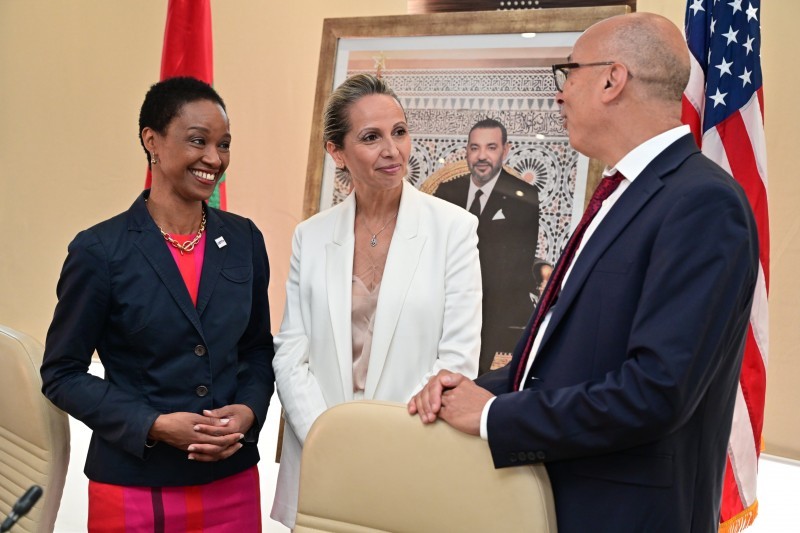Rabat - The U.S. Trade and Development Agency (USTDA) awarded today a grant to Marrakech’s electricity and water distributor (RADEEMA) for a feasibility study that aims to transform the power distribution facility into a smart grid.
Africa Climate Solutions, a Washington-based sustainable development firm, is set to conduct the study for Morocco’s unprecedented project, which will serve as a model for other Moroccan cities, USTDA said in a press release.
The project seeks to reduce RADEEMA’s technical and non-technical losses to address power outages in Marrakech and support the integration of renewable energy sources into the grid.
The feasibility study is expected to define the technical, economic, and regulatory framework for the proposed project, as well as develop an implementation plan to guide the deployment of smart grid infrastructure in Marrakech.
Commenting on the grant, Nadia el-Hilali, General Manager of RADEEMA, said, “We are honored to be the recipient of USTDA’s grant for the smart grid feasibility study.”
She further noted that the project would enable “RADEEMA [to] contribute to achieving the objectives of our national energy strategy to integrate renewable energy while reducing losses on the network.”
Lawrence M. Randolph, Chargé d’Affaires at the U.S. Embassy in Morocco, pointed out that “this project is a great example of the value that U.S. government expertise can bring by connecting American companies with Moroccan partners to further support Morocco’s ambitious clean energy goals.”
Besides underpinning Morocco’s renewables objectives, the smart-grid project supports USTDA’s global partnership for climate-smart infrastructure, which seeks to support clean transport and energy infrastructure projects in emerging markets, such as Morocco.
“Smart grids are an important component of USTDA’s climate-smart infrastructure portfolio,” said Enoh Ebong, USTDA’s Director, stressing their role in advancing “power sector efficiency and facilitat[ing] the integration of renewable sources of power, including rooftop solar, into the grid.”
In 2018, USTDA provided Morocco with a grant to finance the country’s feasibility study for the development of liquified natural gas (LNG) infrastructure. US Lixia Capsia Gestionis conducted the study to assess the prospects of building an LNG import terminal and degassing facility that could be linked to the Maghreb-Europe Gas Pipeline (MEG).
With the closure of MEG in 2021, Morocco announced its plans to enter the LNG market. Today, the North African country is using the closed transnational pipeline to transport regasified imported LNG to Spanish stations. The United States is reportedly the sole exporter of LNG to Morocco.
In April, Morocco’s Minister of Energy Leila Benali announced national plans to consolidate energy infrastructure by developing gas pipelines, ports, storage, and re-conversion units for LNG.
Despite serving as a regional leader in the renewable energy sector, Morocco remains heavily reliant on fossil fuel imports due to the lack of natural reserves and domestic production of oil and gas.
Source: moroccoworldnews

